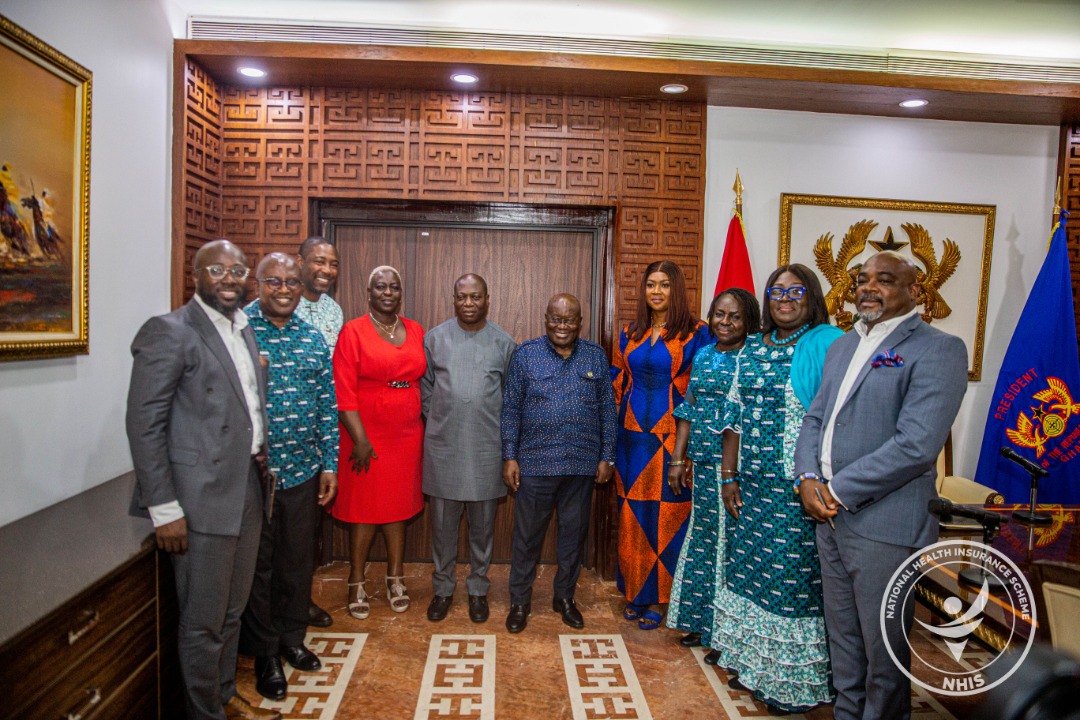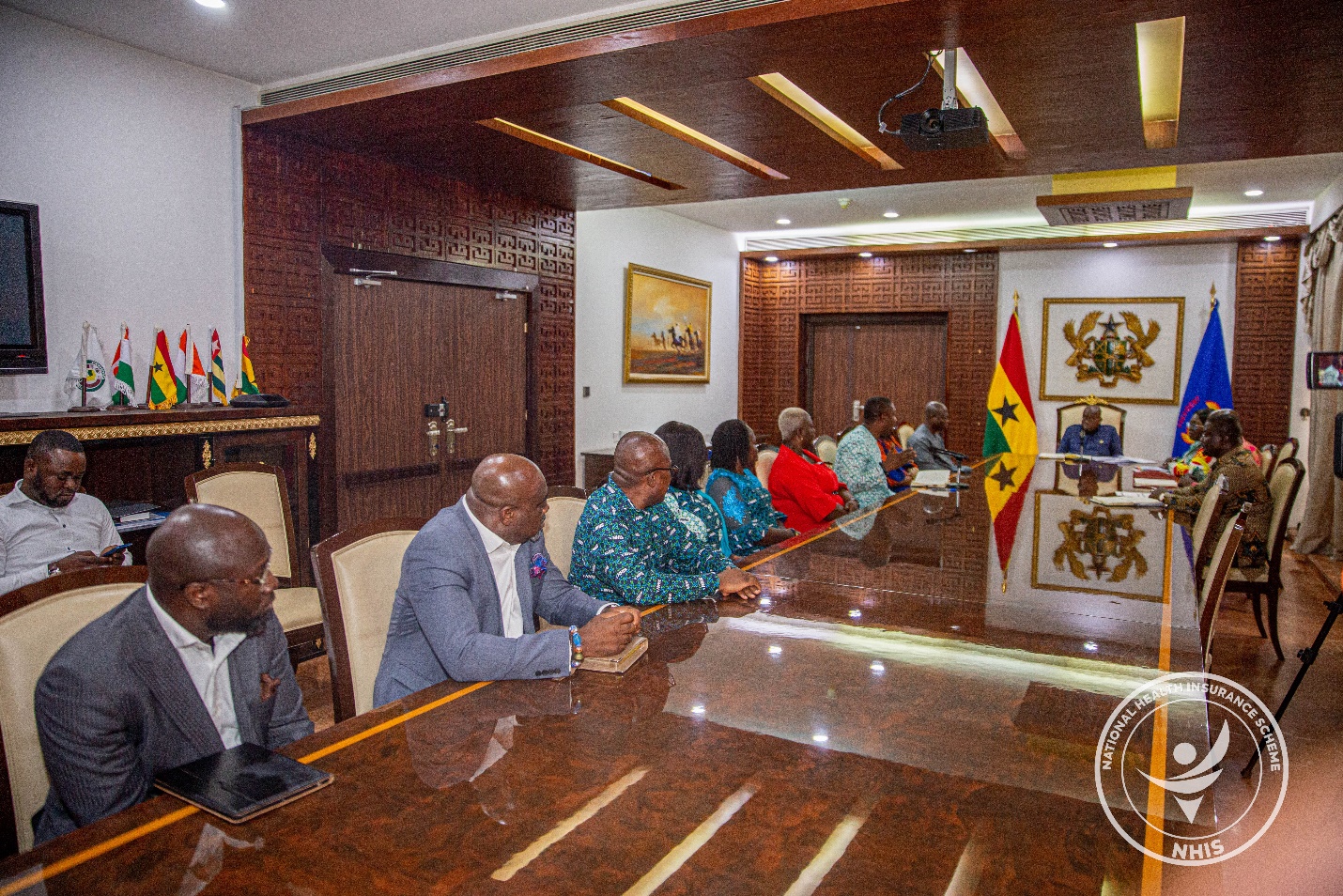The underlying health conditions of the elderly in all spheres of life got complicated by the global outbreak of the Coronavirus (COVID-19) disease.
Appreciating that the elderly deserved maximum healthcare and reassurance, Ghana Government has activated a national program known as the ‘Free Elderly Care Policy.’
This instant healthcare policy, embedded in the National Health Insurance Scheme (NHIS) was introduced on December 9, 2022, to address the many health-related challenges faced by the older population.
This means the government is giving greater priority to covering the healthcare needs of vulnerable groups in Ghana, especially those within the age bracket of 70 and above.
With the support of the Ministry of Health, the NHIA Governing Board initiated the policy directive, following the successful launch of the digital platform dubbed, ‘MyNHIS.’
In fulfilling this policy, the President of the Republic, H.E. Nana Addo Dankwa Akufo-Addo approved the policy pursuant to the National Health Insurance Authority (NHIA) Governing Board’s bidding.
The Presidential assent signaled a strong political leadership needed to deliver successfully, the nation’s Universal Health Coverage (UHC) agenda.

The policy guarantees a waiver of the mandatory 30-day waiting period and an exemption from the premium and processing fees payment, as a member of the Scheme.
The push strengthened Ghana’s goal of attaining Universal Health Coverage (UHC) by the year 2030, riding on the NHIS.

Universal Health Coverage is built on foundations of equity and rights to quality and affordable healthcare services, regardless of people’s geographical locations.
Impact
The policy is providing older persons with distinct, specialized, and complete healthcare in addition to the government’s Livelihood Empowerment Against Poverty (LEAP) program.
This is making it crucial for addressing their healthcare-related concerns, leading to improving the life expectancy ratio of the older population in Ghana.
Since its inception, members of the Scheme who are 70 years and above have been exempted from paying “premiums” or contributions.
For the aged above 70 years to freshly sign up for the NHIS or renew their membership requires payment of only a processing fee of Ghc8 for registration and Ghc5 for renewal.
NHIA Digitalization enthusiasm
The NHIA is leveraging the national digitalization drive to shift from a paper to a paperless regime. The Authority is continually building robust homegrown innovations geared towards saving income and improving efficiency.
Latest Innovation-MyNHIS App
Ending the year 2022, the National Health Insurance Authority (NHIA) strategically introduced an online registration platform dubbed, “My NHIS.”
As a convenient mobile App solution, Vice President of the Republic, Dr. Alhaji Mahamudu Bawumia officially unveiled the App to enable residents in Ghana and beyond to use their Ghana cards and sign up for the NHIS at their own convenience.
The APP operates on both Android and iOS smartphones and will issue digitized NHIS cards and provide a mechanism for the NHIA to fulfill its statutory obligations.
Similar to the NHIS Mobile Renewal platform, people can comfortably sit anywhere and use any mobile phone to sign up for the NHIS.
Significance
The App enables corporate clients and other citizens to use their Ghana Cards to register for the NHIS without necessarily visiting any of the NHIA district offices for the same service.
The new App empowers people to securely pay registration and membership renewal fees from their mobile money wallets, Bank cards, and other payment platforms.
Most importantly, the innovation delivers a vastly improved renewal experience to NHIS members as it saves time and money, thereby making the Scheme much more accessible to all residents in Ghana and beyond.
It is of utmost importance that Ghanaians home and abroad will take advantage of the new App to save time, and expenses, increase higher levels of convenience, eliminate data entry errors, and improve efficiency.
NHIS Journey So Far
The NHIS which was introduced in the year 2003 by the erstwhile John Agyekum Kufuor-led New Patriotic Party (NPP) government and can boast of over 17 million active members representing nearly 55 percent of Ghana’s total population as at the end of 2022.
The Scheme was launched to promote access to equitable and quality healthcare for all residents in Ghana and beyond.
As a pro-poor social intervention program, the Scheme’s primary goal is to increase affordability and accessibility to quality healthcare services, especially among the poor and most vulnerable populations.
Since its inception, there has been an exponential improvement in the health-seeking behavior of the population, as more people are seeking medical attention early and avoiding unnecessary deterioration in their medical conditions.
Benefit Package Expansion
The Scheme’s inclusive Benefit Package which keeps expanding covers 95 percent of disease conditions recorded in Ghana.
The most recent inclusions have been the four main childhood cancers, family planning, and a specialist anti-breast cancer treatment drug called Herceptin.
New financial reforms including prompt payments of Claims to healthcare providers in recent times have increased the public’s confidence in the Scheme.
The NHIS is governed by the National Health Insurance Authority (NHIA), headquartered in Accra, and has sixteen (16) administrative regional offices, 175 district offices and four (4) Claims Processing Centres (CPC) and has contracts with over four thousand (4,000) credentialled public, private, and faith-based healthcare service providers.
In collaboration with the National Identification Authority (NIA) and as part of the government’s digital drive, the NHIA seeks to adopt the use of the Ghana Card by NHIS members to access healthcare.
It is therefore imperative for holders of NHIS and Ghana cards to do the merger by simply dialing the short code *929# or doing so on the MyNHIS App.
The NHIS is the vehicle and road on which Ghana’s Universal Health Coverage (UHC) drives. The current NHIA Governing Board and Executive Management have amply demonstrated that they are committed to the agenda.
Source: NHIA

Comments